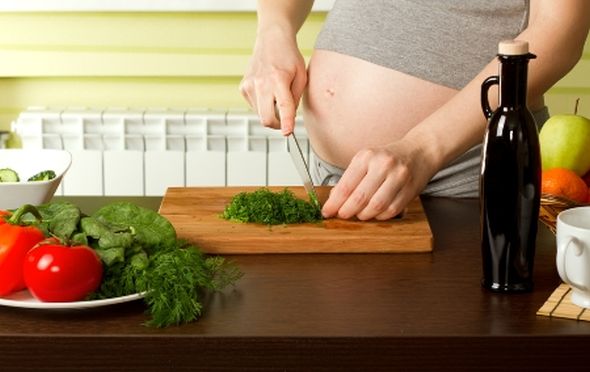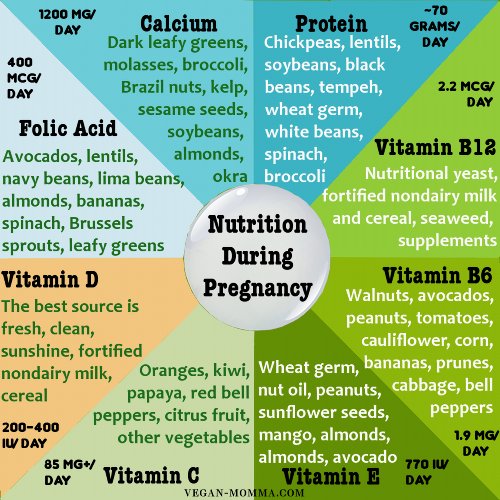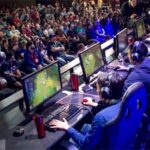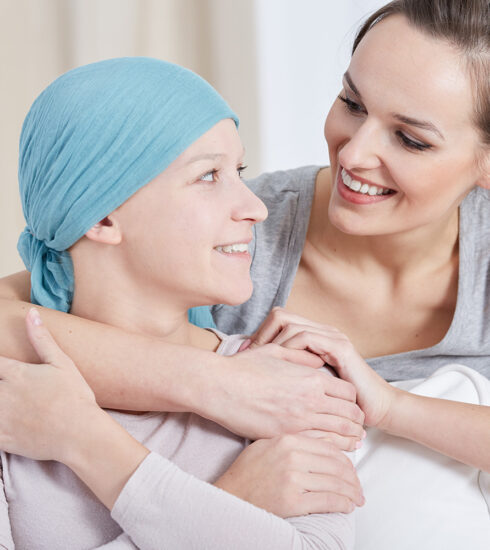Having a Healthy Baby While Following a Vegan Diet
Vegan diets often come under scrutiny for lacking essential nutrients needed by those who adhere to them. Recently, a strict vegan couple in France was charged with neglecting and depriving their child after she died at just 11-months-old. The child, who was fed nothing but her vegan mother’s milk, weighed about 10 pounds when she should have weighed about 16. Postmortem testing of the infant revealed that she had dangerously low levels of vitamin B12, a vitamin often lacking in vegan diets. Medical experts determined that her deficiency led her to be more susceptible to infection. This story emphasizes the utmost importance of women getting proper nutrition while pregnant and parents ensuring their children get all the nutrients they need.
Many nutritionists feel that at certain stages of life in particular, people need specific nutrients in their diets that a complete lack of animal products simply cannot provide. For example, a 2009 article in The Telegraph referred to a study in which scientists noted the potential birth defects that a baby could have if its mother followed a vegan diet during her pregnancy. Often, vegans lack vitamin B12 in their diets, which can lead to neural tube defects in newborns. The Telegraph quoted Dr. Duane Alexander, director of the National Institute of Child Health and Human Development in Maryland, as saying the results of the 2009 study in which he participated “suggest that women with low levels of B12…may increase the chance that their children may be born with a serious birth defect.” Another participant in the study, Dr. James Mills, noted that this is of particular concern as the formation of the nervous system occurs before many women realize they are pregnant. However, Mills also stated in the article that women who “have adequate B12 levels before they become pregnant may further reduce the occurrence of this class of defects.”
 Alongside the medical professionals in opposition to expectant women adhering to vegan diets are many staunch supporters. Dr. Samuel M. Flaxman and Paul W. Sherman, authors of the article “Morning Sickness: A Mechanism for Protecting Mother and Embryo,” claim that nausea at the start of pregnancy is the body’s way of protecting the developing fetus from harmful foods. They refer to a study which they conducted revealing that pregnant women generally had a greater aversion to animal-derived foods.
Alongside the medical professionals in opposition to expectant women adhering to vegan diets are many staunch supporters. Dr. Samuel M. Flaxman and Paul W. Sherman, authors of the article “Morning Sickness: A Mechanism for Protecting Mother and Embryo,” claim that nausea at the start of pregnancy is the body’s way of protecting the developing fetus from harmful foods. They refer to a study which they conducted revealing that pregnant women generally had a greater aversion to animal-derived foods.
Whether die-hard advocates for vegan diets or otherwise, the general consensus among the medical community is that pregnancy generally requires a change in diet regardless of whether or not it includes animal products. Along with increasing the amount of certain nutrients, WebMD recommends the average pregnant woman increase her caloric intake by 300 calories a day to account for the needs of the developing fetus. To prevent neurological birth defects like those mentioned by Dr. Mills, women trying to become pregnant or in the early weeks of their pregnancy should increase their intake of folic acid and vitamin B12, according to the magazine Parents. As the only food sources of vitamin B12 come from animals, vegans must turn to supplements for this vital part of their diet. When choosing a B12 supplement, a liquid version it is easier for the body to absorb.
Karen Robinson, president of the Colorado Midwives’ Association, admitted that despite having seen slower recovery times among vegan women following the birth of their babies, vegan pregnancies can produce healthy babies if done correctly. “It is important that pregnant women get around 800 micrograms of folic acid and 1,500 micrograms of calcium per day,” she advised. “It is also critical that vegans consume about 60 to 80 grams of complete protein per day.” A complete protein is a protein containing all nine of the essential amino acids needed by the body. Most animal-derived foods contain complete proteins, but there are plant-based options as well. For example, quinoa and soybeans both provide all nine essential amino acids. Combining incomplete proteins throughout the day also satisfies the protein needs of an expectant mother. Robinson also emphasized the importance of pregnant women listening to their bodies by saying that if you are pregnant and craving meat or dairy, you may want to consider compromising for the sake of your fetus.
However, there are a number of resources created by medical professionals available for vegans during pregnancy. One such example recommended by Los Angeles vegan nutritionist Matt Ruscingo, vegetariannutrition.net, offers meal plans for expectant women steering clear of animal products as well as those simply avoiding meat. On their website, the have a document written by the Academy of American Dietetics providing a list of the key nutrients that a vegan must incorporate into her diet. The AAD recommends that pregnant vegan women consume 600mcg of folic acid a day, which “helps produce and maintain new cells and reduce the risk of neural tube defects.” For expectant vegan women, this means eating dried beans, dark, leafy greens, orange juice, enriched or whole-grain breads and enriched cereals to name a few. They also recommend 1,000mcg of calcium, a vital mineral leading to strong bones and teeth and contributing to muscle and nerve function. They recommend vegans get their calcium needs through sources like fortified alternative milks, almonds, figs, and dark, leafy greens. Vitamin D is just as important as calcium in bone formation in the fetus. While vegetarians can obtain this source through cow’s milk and eggs, vegans can turn to fortified cereals and soymilks and exposure to sunlight. Vitamin D supplements are also important additions in the diets of vegan women to reach the recommended 600IU per day. Consuming iodized salt or sea vegetables such as kelp can help pregnant women obtain 220mcg of iodine daily, which contributes to hormone production in developing fetuses. Other important nutrients to consume during pregnancy are DHA, omega-3 fatty acids, niacin, riboflavin, thiamin, iron, zinc and selenium, according to registered dietician Julieanna Hever, author of The Complete Idiot’s Guide to Plant-Based Nutrition. Expectant vegan women may wish to consider adding a vegan prenatal supplement to their dietary regiment to avoid deficiencies that may lead to anemia and birth defects.
Planning ahead to ensure that a developing fetus receives proper nourishment is of utmost importance, as seen in the case of the malnourished daughter of vegan parents. Doctors, nutritionists and other health professionals can serve as guiding posts along the exciting path of pregnancy. The book The Complete Idiot’s Guide to Plant-Based Nutrition dedicates an entire chapter to vegan pregnancy. No matter what diet an expectant mother decides to follow, the vast resources available ensure that she can follow the right path towards producing a healthy baby.
[sdonations]2[/sdonations]







